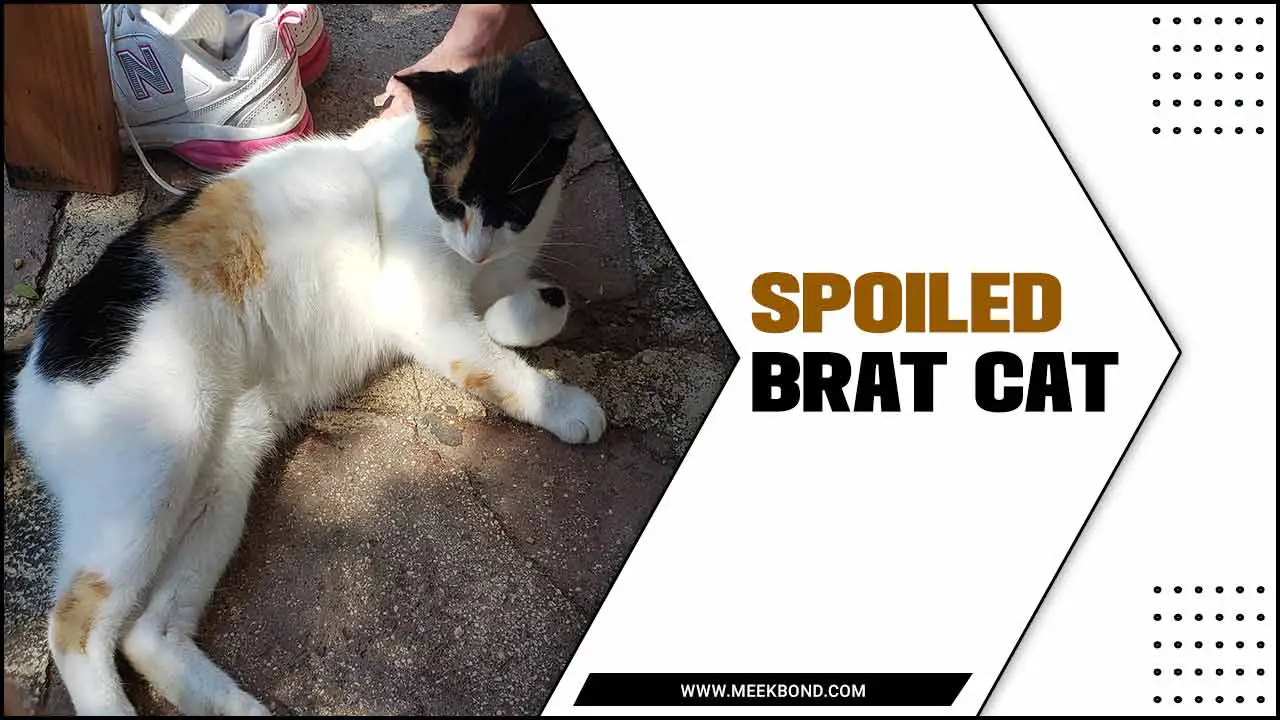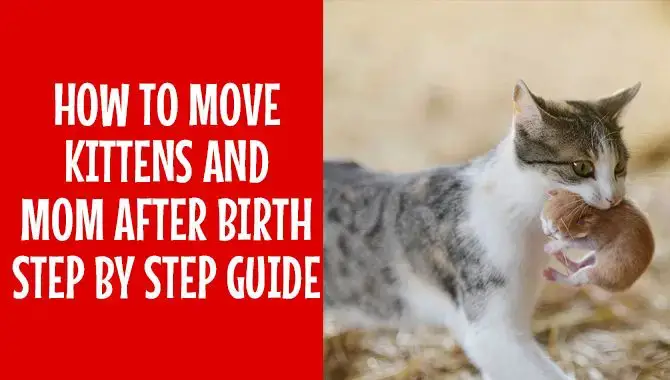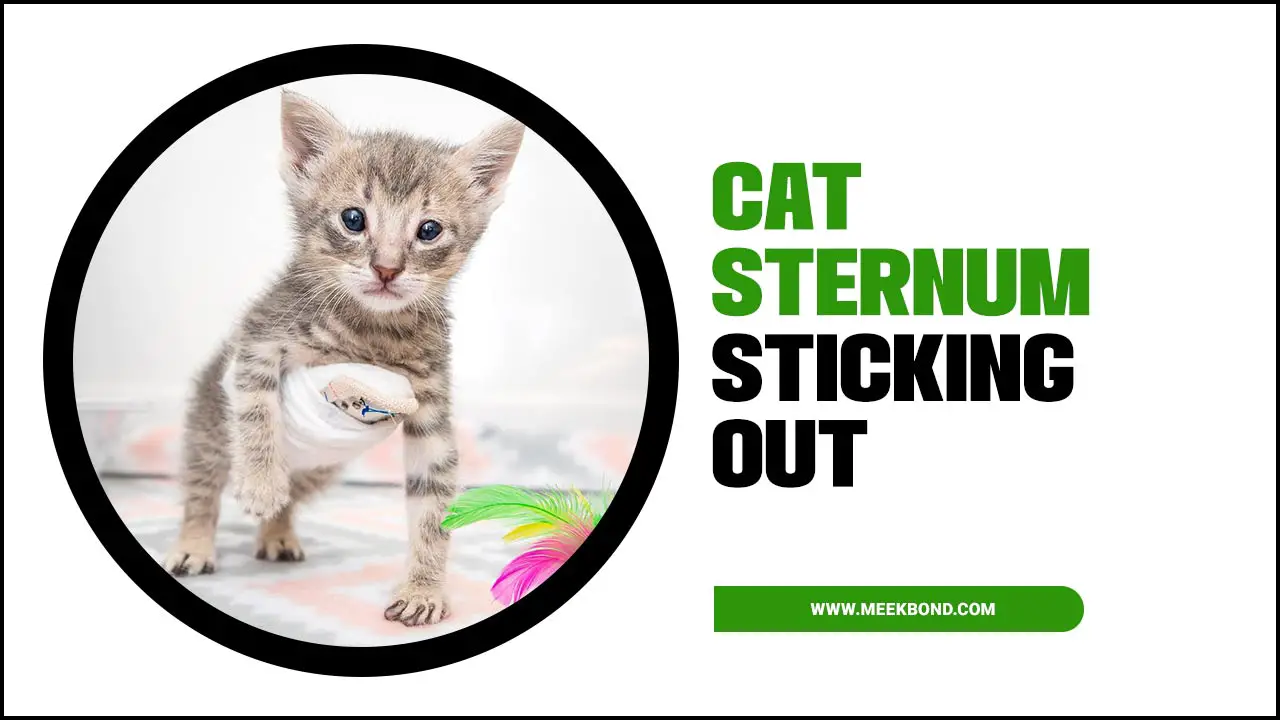As pet owners, we are often delighted by the playful and nurturing behavior of our furry companions. However, there are times when our beloved animals exhibit unexpected and seemingly aggressive actions.
One such behavior that may cause concern and confusion is a mother cat biting kittens neck. This seemingly aggressive act can leave pet owners feeling worried and unsure of how to intervene. We will delve into the reasons why mother cats may bite their kittens’ necks and how to handle and understand this behavior properly through a professional and informative lens.
We aim to provide insights and strategies for effectively managing this behavior. Ensuring the safety and well-being of both the mother and her litter by gaining a deeper understanding of the reasons behind a mother cat’s biting behavior.
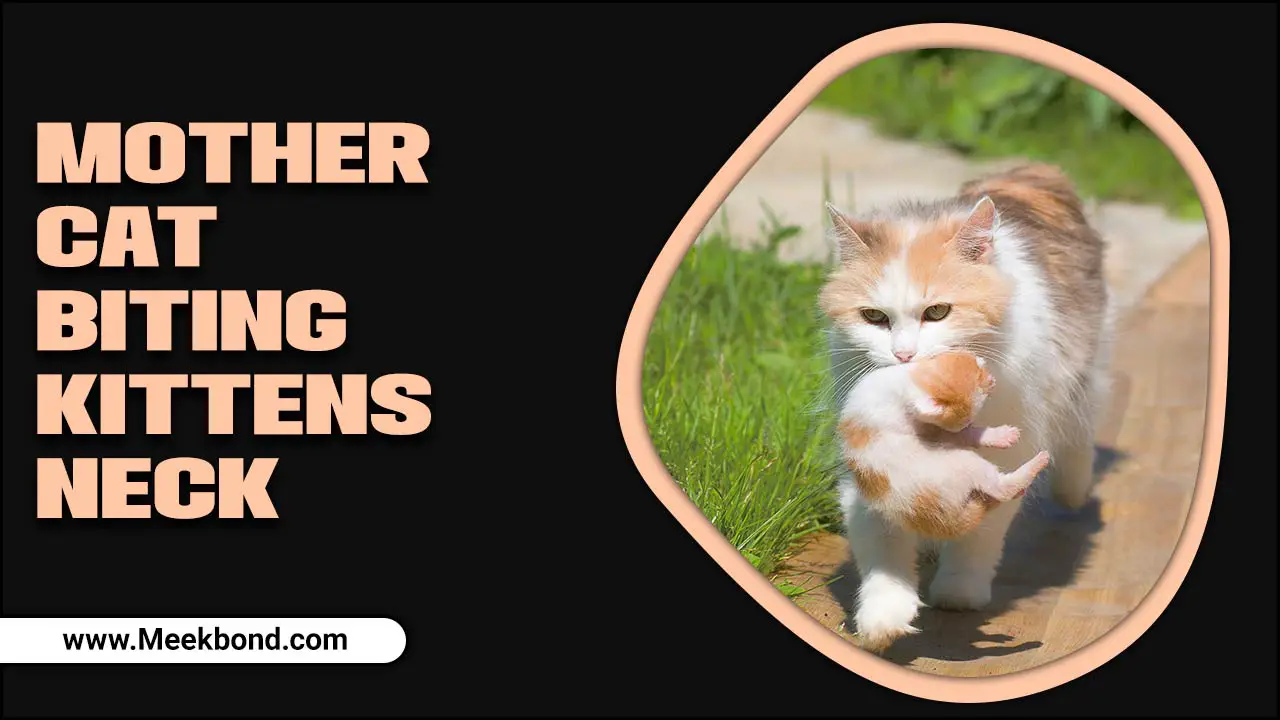
5 Reasons Why Mother Cat Biting Kittens Neck
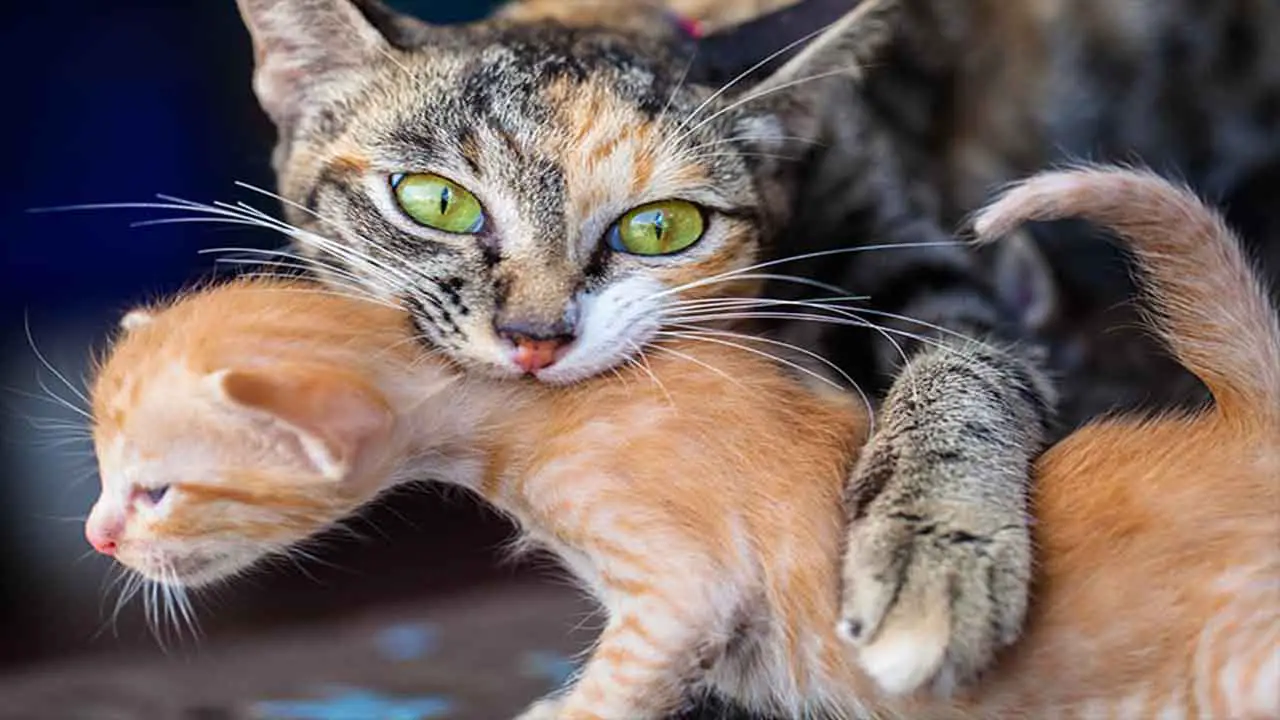
Here are reason reasons why mother cat biting kittens neck. Mother cats biting their kittens’ necks is a common behaviour that can be alarming to new cat owners. However, this natural behavior serves a crucial purpose in developing kittens.
The mother cat will grab the kitten by the scruff of the neck and carry it to a new location. This is called the “scruff carry,” and it is a natural way for mother cats to transport their young.
Another reason why mother cats bite their kittens’ necks is to teach them how to hunt. Mother cats will bring prey, such as mice, to their kittens and demonstrate how to catch and kill them. During this process, the mother cat will bite the neck of the prey to kill it quickly and efficiently. By observing this social behavior, the kittens learn how to hunt and survive in the wild.
Additionally, mother cats will bite their kittens’ necks to establish dominance and discipline. This behaviour is most common when the kittens are misbehaving or not following the mother’s rules. The mother cat will grab the kitten by the scruff of the neck and give it a firm shake to show that it is in charge. Here are 5 possible reasons why a mother cat may bite her kitten’s neck:
1. Cleaning And Grooming
Mother cats use their teeth to grasp and hold onto their kittens while grooming them. Biting the neck helps them to remove dirt, debris, and excess fur from their kittens’ bodies. Cleaning and grooming play a crucial role in maintaining the health and hygiene of the kittens.
Mother cats instinctively groom their offspring to keep them clean and free from dirt and parasites. Using her rough tongue, the mother cat licks the kittens all over, paying special attention to their necks, faces, and bodies. During this grooming process, the mother cat may gently bite the kittens’ necks. This common behavior serves two purposes.
Firstly, it helps the mother cat to keep the kittens in place while she cleans them thoroughly. By grasping the neck with her teeth, she ensures that the kittens stay still, allowing her to reach every nook and cranny. Secondly, the gentle biting of the neck area stimulates the kittens’ natural reflex to urinate and defecate. This is particularly important during the early stages of their lives when they are unable to eliminate waste independently.
2. Discipline And Teaching
Mother cats use gentle bites on the neck to discipline their kittens and teach them appropriate dominance behavior. It is a way for the mother cat to establish her authority and set boundaries for her baby kittens. Discipline and teaching are crucial steps in the process of addressing a mother cat’s behavior of biting her kittens’ necks.
While it is important to understand that this behavior is a natural instinct for mother cats, it is equally important to ensure the safety and well-being of the kittens. One approach to discipline is to redirect the mother cat’s biting behaviour by offering her appropriate toys or objects to chew on. This helps to satisfy her need to bite and reduces the likelihood of her targeting her kittens.
3. Moving Kittens
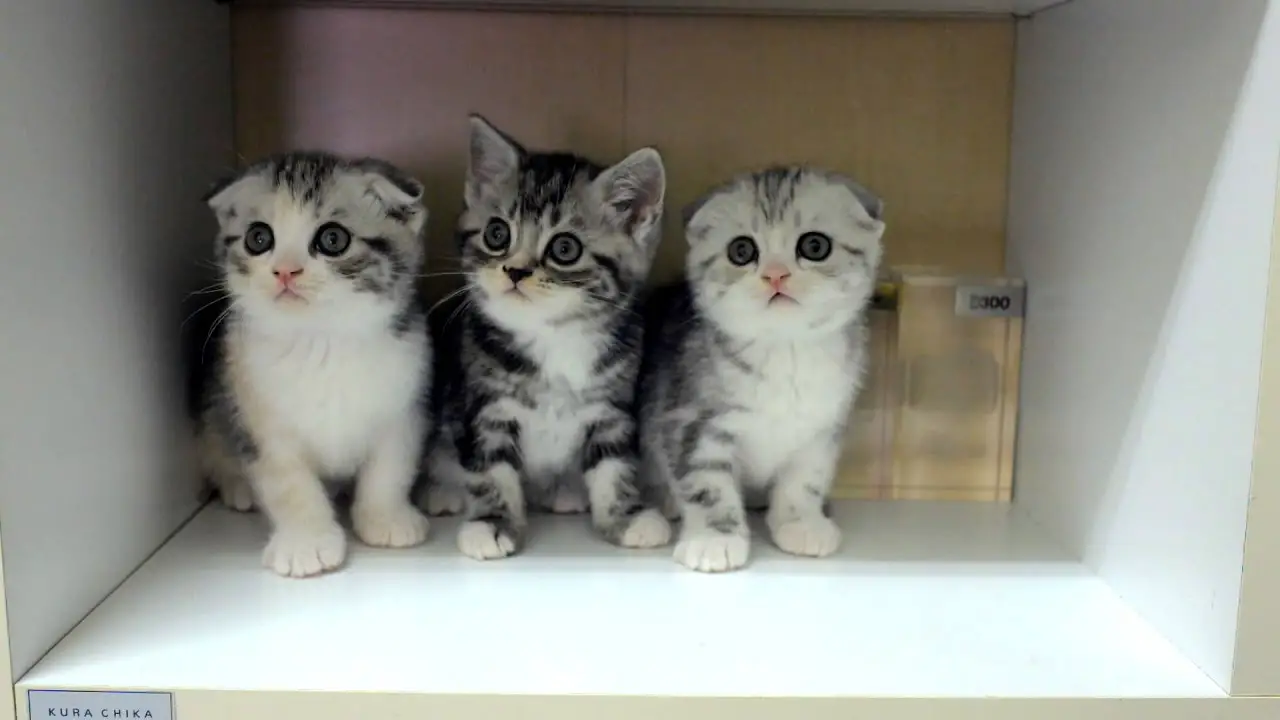
Mother cats often carry their kittens by biting the scruff of their necks. This is a natural instinct that allows the mother to transport her kittens from one place to another safely. When moving the kittens, it is crucial to prioritize their safety and minimize stress. Begin by preparing a warm and cozy space for them, such as a clean and lined box with soft bedding.
This will provide them with a sense of security and warmth, mimicking the mother cat’s presence. Before handling the kittens, make sure to wash your hands thoroughly and wear clean gloves to avoid transmitting any potential germs. Gently pick up each kitten, supporting their entire body and cradling them close to your chest. It is essential to handle them with utmost care, as their bodies are delicate and fragile.
4. Stimulating Nursing Reflex
When a mother cat bites the neck of her kittens, it can help stimulate their nursing reflex. This is especially important during the early stages of their lives when they rely on their mother’s milk for nutrition and growth. To begin, the mother cat will gently nudge her kittens towards her belly, signalling that it is time for them to nurse. She will use her nose and paws to guide them towards her teats.
The kittens, still young and vulnerable, will instinctively respond to this stimulation and start searching for their source of nourishment. As the kittens nuzzle and knead against their mother’s abdomen, their tiny tongues will begin to lick and massage the area around the teat. This action triggers the release of the hormone oxytocin in the mother’s body, which in turn stimulates the flow of milk from her mammary glands.
5. Establishing Hierarchy
Establishing a hierarchy is an essential aspect of the mother cat’s role in raising her kittens. As the kittens continue to grow and develop, the mother cat instinctively begins to assert her dominance and establish a clear hierarchy within the family. This hierarchy ensures that each kitten understands their place and role within the group, ultimately fostering a sense of order and harmony.
The mother cat accomplishes this by gently biting the kittens’ necks, a behaviour known as “scruffing.” This action mimics how a mother cat would carry her kittens in the wild and serves as a way for her to assert her authority and control.
How To Make Sure Your Cat’s Necks Are Safe And Sound
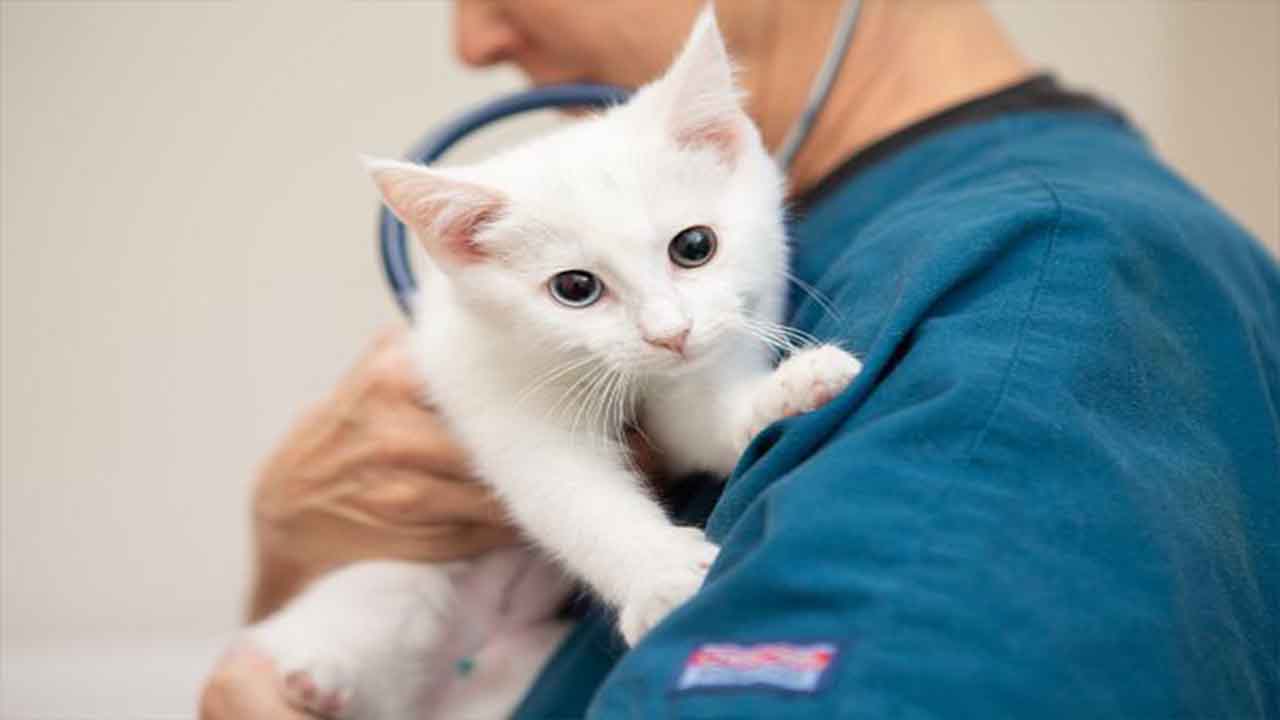
Regarding mother cats biting their kittens’ necks, it’s important to ensure the safety and well-being of your feline family. While some gentle biting is a normal part of mother-cat behavior, excessive or aggressive biting can be a cause for concern. To make sure your cat’s necks are safe and sound, consider the following tips:
- Observe The Behaviour: Take note of how often and how forcefully the mother cat is biting her kittens’ necks. If it seems excessive or painful for the kittens, intervention may be necessary.
- Provide A Safe Environment: Create a comfortable and secure space for the mother cat and her kittens. Make sure they have access to food, water, litter boxes, and plenty of toys to keep them entertained.
- Monitor Interactions: Keep a close eye on how the mother cat interacts with her kittens. If you notice any aggressive behavior or signs of distress from the kittens, separate them temporarily and consult with a veterinarian or animal behaviorist for guidance.
- Seek Professional Advice: If you’re concerned about the mother cat’s behavior or if you’re unsure how to handle the situation, don’t hesitate to reach out to a professional who can provide expert advice and guidance.
Remember, ensuring the safety and well-being of your cats is crucial. By taking proactive steps and seeking assistance when needed, you can create a harmonious environment for your feline family.
Training And Discipline Of Kittens
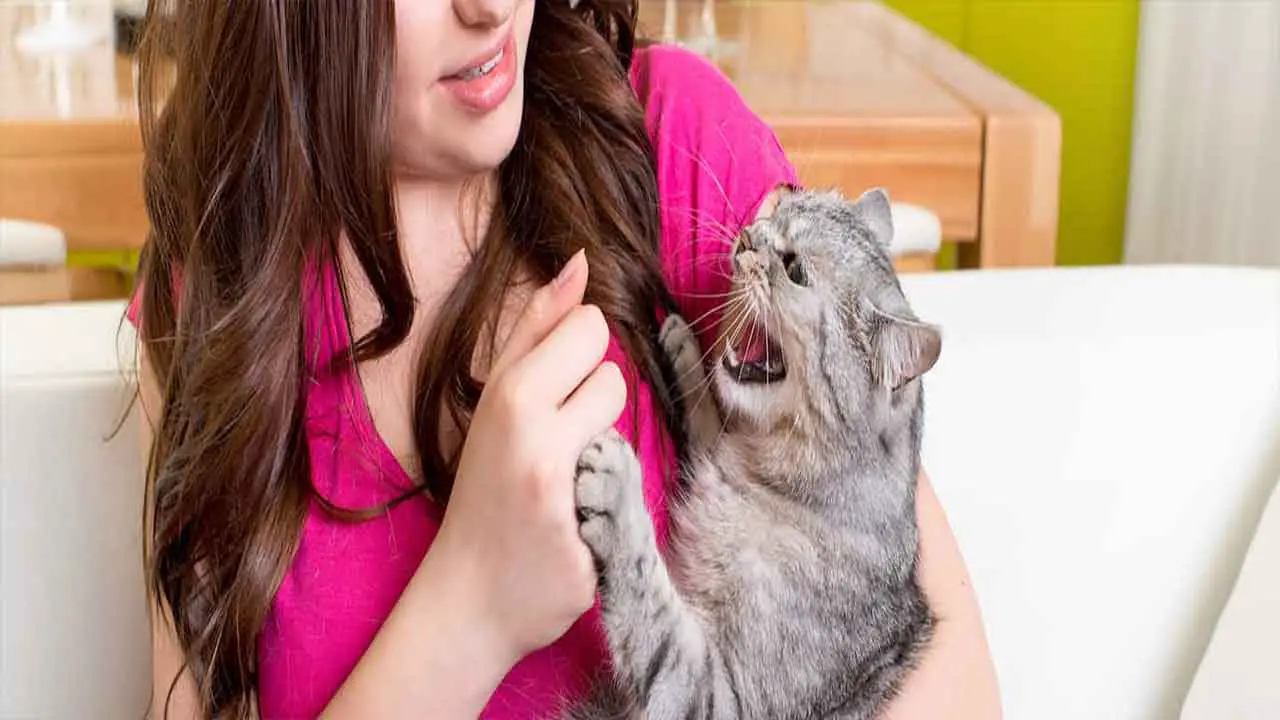
When training and disciplining kittens, it’s essential to understand the natural behaviour of mother cats and their young. Positive reinforcement is critical to successful kitten training and discipline. As a mother, cats use biting to teach boundaries and control movements. However, negative behaviour should be discouraged with deterrents like bitter apple spray while remaining consistent and patient.
Seeking advice from a veterinarian or animal behaviourist can also provide helpful tips for more severe cases. Remember, kittens learn through play. So, providing them with interactive toys can help keep them engaged and positively reinforce good behaviour.
Why Is There A Big Scar Behind My Cat’s Neck?
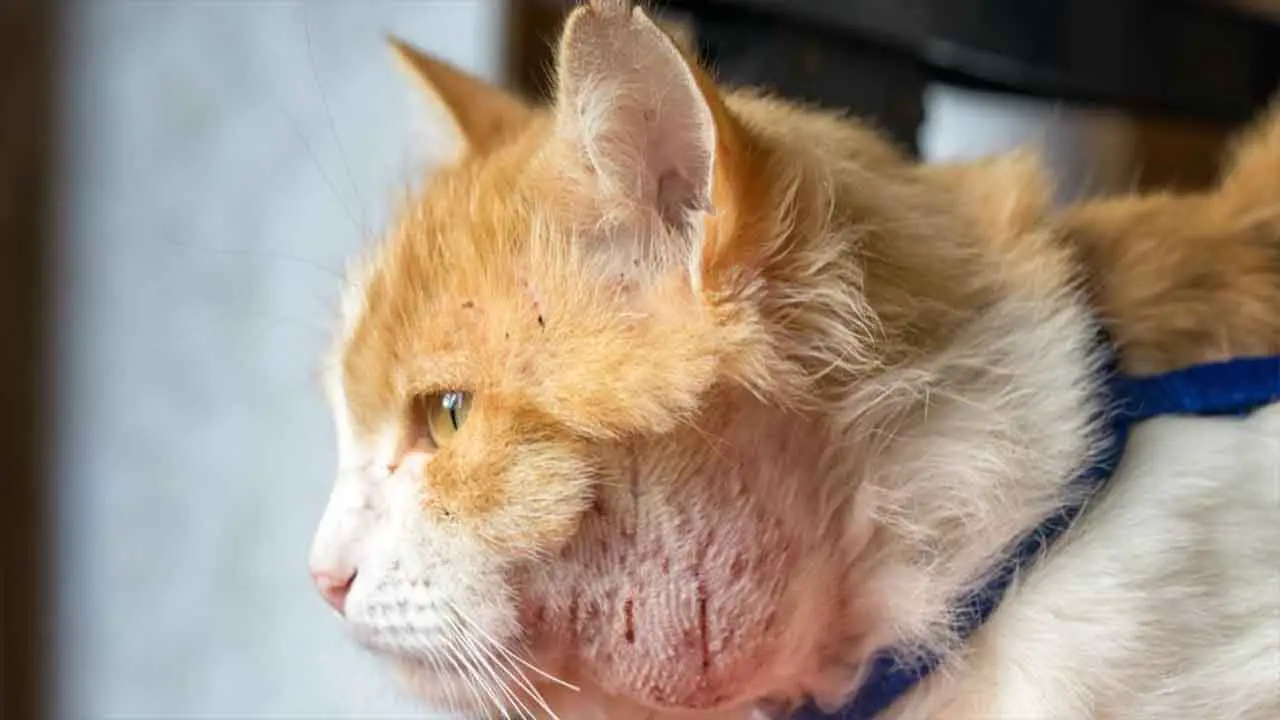
A typical medical term explaining many strange-looking wounds on a female cat’s neck or body stems from the word “incision.” It means damage made by incisions that a surgeon uses during surgery. These scars result from trauma, causing pain that makes the animals move away or hide; however.
As they are still young, thanks to their small size. Such feelings confuse them, and they jump into walls, causing open wounds from minor injuries (if born in captivity). Which can grow bigger over time while getting used to the most intense play with their mothers.
Which is why we find these scars on the neck of many cats. Even though most wounds in this area do not reach for a sharp needle and are relatively light injuries caused by playing.
Cats biting themselves aren’t considered dangerous to health. Still, issue owners frequently investigate getting rid of them because they can be scarring (this often happens when there are specific wounds from some accident, such as falls or dramas).
Is It Possible For My Cat To Harm A New Kitten?
It is possible for a mother cat to harm a new kitten, especially if she is feeling stressed or overwhelmed. In some cases, a mother cat may bite the neck of her kittens as a way to discipline them or establish dominance.
However, it is important to closely monitor the feline behavior of the mother cat and intervene if necessary to ensure the safety and well-being of the kittens. If you notice any aggressive behavior towards the kittens, it is best to consult with a veterinarian or animal behaviorist for guidance on how to address the situation and keep the kitten safe.
Is It True That All Cats Would Embrace A New Kitten?
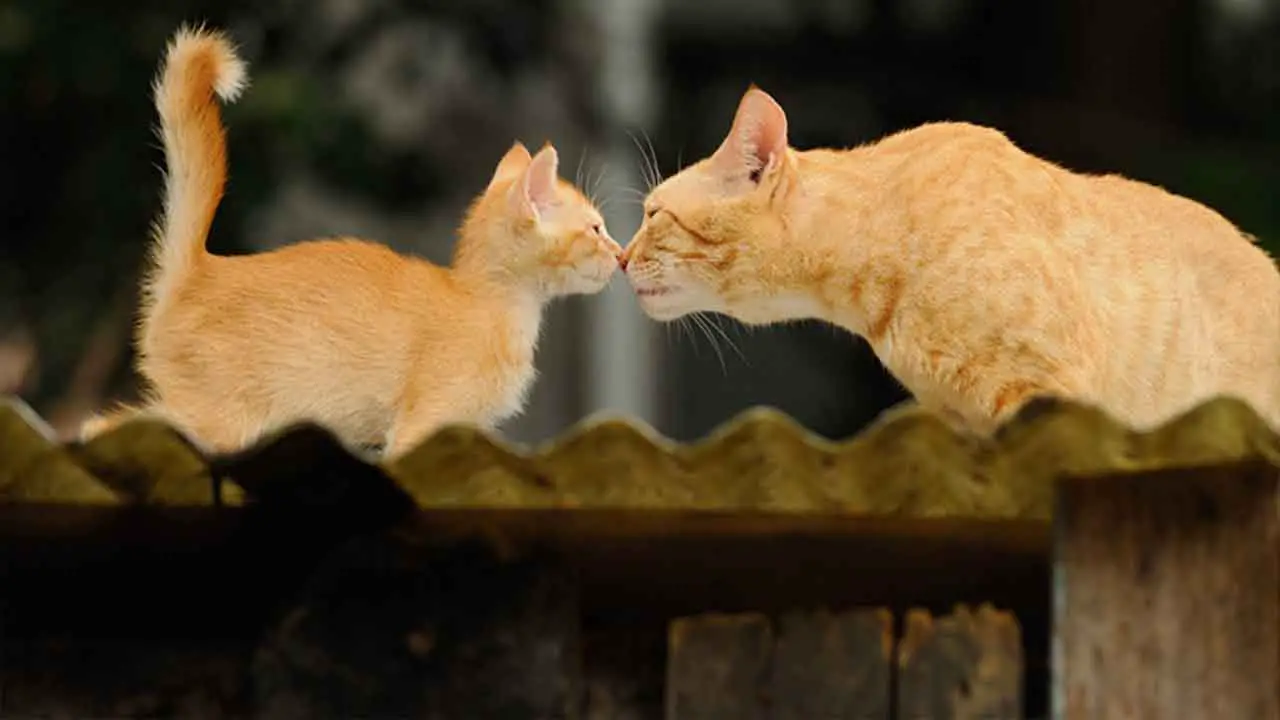
This is peculiar even to notice this trait in cats. Owners will observe that cats adjust their behavior and habits when a new kitten is introduced, as research shows that cats respond to the presence of a new one.
When kittens are less than four months old, but then again. If not well-adjusted or taken care of properly for several weeks after birth. Mothers often kill them before letting them smell feet (this sounds quite generic information. But many cat breeders struggle with handling.)
Why Is My Kitten Being So Naughty?
If you’re constantly biting your kitten, it might be because the kitten feels overwhelmed or scared. When a kitten bites you, it’s likely because it’s feeling overwhelmed or scared. Kittens are playful and often enjoy chewing things, including their mother.
You can try gentle behavioral techniques like playing with your kitten daily or putting it in another room when it starts to act out. If these techniques don’t work, please bring your kitten to the vet for an examination and possible vaccinations against rabies.
Why Do Domestic Cats Become Aggressive And Bite?
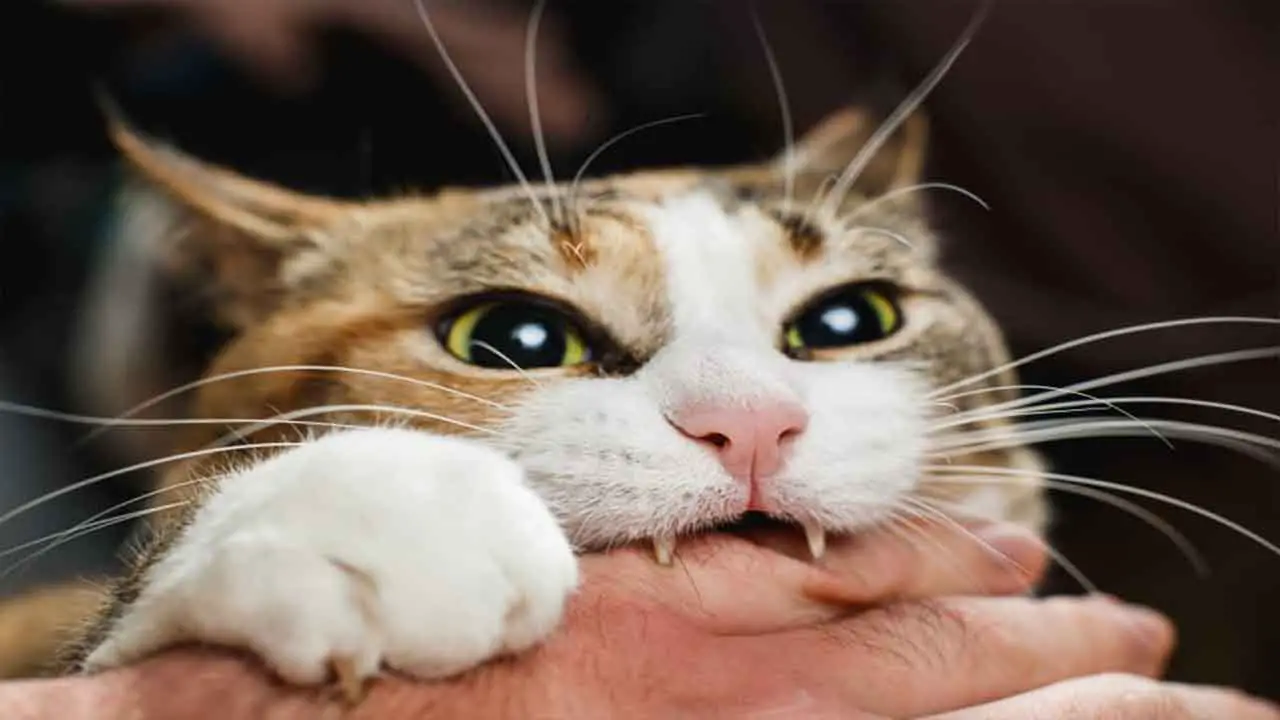
There’s no denying that cats are adorable, but they can be fiercely territorial and bite in response to various triggers. When a cat bites, it’s usually because the biting individual is fearful or angry when approached by the cat.
This can happen when a cat feels threatened by something new in its environment (new people moving in, for example) or when sudden movements, unfamiliar smells. Or new noise levels make the cat uneasy. If you’re experiencing any of these symptoms around your cat. It might be time to seek veterinary help to determine the cause of the bite and improve communication between you and your pet.
Why Do Mother Cats Growl At Their Kittens?
Mother cats may growl at their kittens for various reasons. One common reason is to establish boundaries and discipline. By growling, the mother cat is teaching her kittens proper behavior and setting limits on their actions. It is a way for her to assert her authority and maintain control over the litter. Another reason for growling is to protect the kittens from potential threats.
If the mother cat perceives any danger or feels that her kittens are in jeopardy, she may growl as a warning signal. This normal behavior is instinctive and serves to keep the kittens safe. It is important to observe the overall behavior of the mother cat and ensure that her needs are being met to ensure the well-being of both her and her kittens.
Why Do Cats Bite Each Other’s Necks?
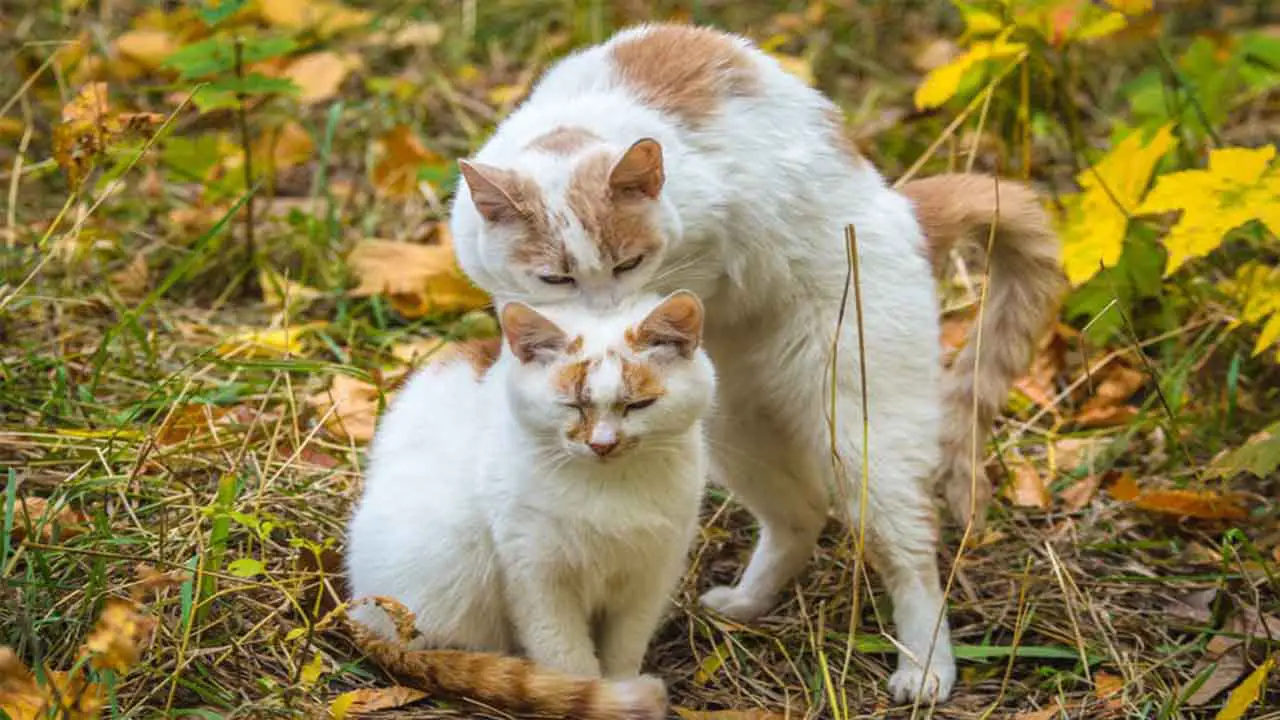
Cats biting each other’s necks is a normal cat behavior that can serve a few different purposes. One common reason for this behavior is play. Cats, especially kittens, often engage in rough play with their littermates, and biting each other’s necks is a way to simulate hunting behavior.
It can also be a sign of affection or bonding between cats. Mother cats will often bite their kittens’ necks as a way to pick them up or move them, and this behavior can continue into adulthood as a form of communication or grooming.
Additionally, some cats may bite each other’s necks during mating as part of the reproductive process. Overall, while it may look aggressive, biting each other’s necks is generally a normal part of cat behavior and should not be cause for concern unless it becomes excessively aggressive or causes harm to the cats involved.
Conclusion
If you are reading this Mother cat biting kittens neck, you are probably one of the people who have witnessed a mother cat biting her kittens. The behavior is widespread in cats and can be explained by their instinct to protect their young.
Mother cats bite kittens because they feel the babies are not strong enough to survive without them. The leading cause of the mother cat biting her kitten’s neck is that she wants to protect them from predators like dogs or foxes. Which might harm them while they’re still too small. We hope you understand what a mother cat biting a kitten’s neck means.
FAQ’s
Is It Normal For Mom Cats To Bite Their Kittens?
Yes, it is normal for mother cats to bite their kittens. This behavior is a form of discipline and teaching the kittens boundaries. By biting, the mother cat is teaching her kittens how to behave and communicating that certain behaviors are not acceptable.
Why Is My Female Cat Biting My Kittens Neck?
Female cats may bite their kittens’ necks as a form of discipline or to assert dominance. This behavior is known as scruffing, and it is a common way for mother cats to teach their offspring proper behavior and boundaries.
Why Is My Mother Cat Attacking Her Kittens?
There could be various reasons why a mother cat is attacking her kittens. It is possible that she is experiencing stress or discomfort, which may lead to aggressive behavior towards her offspring.
Why Do Mom Cats Grab Their Kittens By The Neck?
Mom cats grab their kittens by the neck as a natural instinct to carry and move them. This behavior mimics how they would carry their kittens in the wild, by grabbing them by the scruff of the neck.
Is It Bad To Hold Kittens By Their Neck?
Yes, it is bad to hold kittens by their neck. Kittens have delicate necks and holding them in this way can cause them harm or injury. It is important to handle kittens gently and support their bodies properly, using both hands to support their hindquarters and chest.

Aquarium passion is all about connecting with the aquatic life and providing education to the public on the importance of these creatures. We showcase a wide variety of marine life through our exhibits as well as working with schools to provide unique learning opportunities for students of all ages.

